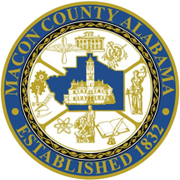TUSKEGEE, Alabama – Sitting in the back seat of an F-16 jet on a flight over Tuskegee, Mayor Tony Haygood looked down at Moton Field and envisioned the historic airfield’s future as the production site of the U.S. Air Force’s next jet training aircraft.
“From that height, it is amazing how you can see the whole layout of things at Moton Field and where the runway expansion would be,” Haygood said. “There’s plenty of space for it, and we’ll be doing some other improvements.”
Earlier this year, global aerospace company Leonardo selected Moton Field as the manufacturing site for its T-100 advanced trainer jet if the Air Force chooses the aircraft as its next-generation trainer. The project would bring 750 jobs to the airfield where the pilots of the Tuskegee Airmen received their training.
Haygood, who is traveling to Italy with an Alabama delegation to tour a Leonardo aircraft factory this week, said an in-depth look at the company’s manufacturing operation will assist Macon County’s preparations for the Tuskegee facility.
“This is like advance preparation that gives us an opportunity to see, hear, and understand how we need to get ready,” he said.
Made In Alabama caught up with Haygood in Tuskegee before the Alabama team departed so he could share his insights on the Leonardo T-100 jet trainer project planned for Moton Field. Here’s what he said.
Q: What would the Leonardo T-100 manufacturing facility mean for Tuskegee and the region?
A: It would be a tremendous boost to this community. For Tuskegee, it would be the largest project we’ve had in our history. It would be a big boost for the entire economy of South Central Alabama and would impact the entire state as well. For us, it would mean high-quality jobs, and it would trigger a revitalization of our entire economy.
Q: Can the area provide the workforce for the Leonardo T-100 facility?
A: We can provide a quality workforce, and we will have assistance from the state. Go back to the Tuskegee Airmen. People didn’t think they could fly advanced aircraft, but given the opportunity and the training, they not only flew, they excelled. It’s really the same story today. Give people the opportunity, give them the support, and we can develop the workforce and the expertise that is needed.
Q: You’ve met with the Leonardo team several times. What is your impression of the company?
A: They’re very sharp, very focused. They’ve done their homework in terms of providing the Air Force with a product at a competitive price, and they understand the challenges that are before us as we make this bid. They have a quality trainer jet that can compete against anyone else’s. They’ve analyzed this area and came here several times to look at what needs to be done here, what we had to offer, and what makes this a good site. Since they made their decision in favor of Tuskegee, they’ve been a great partner.
Q: Does the T-100 project have the backing of the community in Tuskegee?
A: The community has really stepped up to embrace this project. They realize there are things we’ve got to do to get ready, and they’re just asking what they can do. Every part of this community is excited about this opportunity. It’s not just excitement; they’ve expressed a willingness to do what needs to be done. The entire community has responded, and we’re doing a number of things to get ready.
Q: One of the interesting things about this project is the historical link with the Tuskegee Airmen, who flew missions during World War II from bases in Italy. Do you feel the connection?
A: It’s like reaching back to the future. You’re going back to the foundation laid by the Tuskegee Airmen, and the good relationship they had with the Italians while based at the airfield in Ramitelli. The positive exchange they had back then with the Italians has come full circle to impact us today. They’re coming back to help us launch a whole new era. It’s a continuation of the Tuskegee Airmen story, which is powerful in itself, and it’s bringing us to a new level.
By Jerry Underwood, Made In Alabama
.


